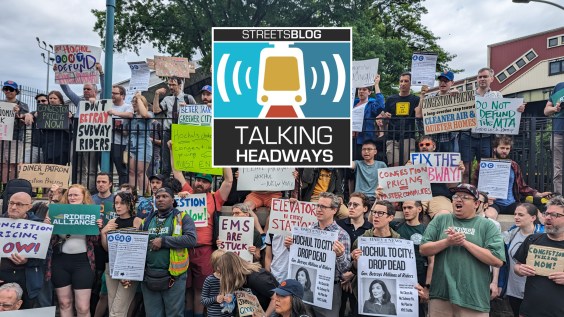In the SoMa West Central Business District, the city is on track to eliminate 764 trees—24 percent of the neighborhood's tree canopy. This is a key finding in Concrete Over Canopy: How San Francisco is Failing Its Environmental Justice Communities, a new study that digs into how the city is reducing the number of street trees in the very neighborhoods that need them most.
"In 2014, the city committed to planting 50,000 new trees, but we haven't planted any net new trees," said advocate Shaun Aukland, who authored the study on behalf of the Save SF's Narrow Street Trees working group, a local advocacy org.
The study found several reasons for this, but Aukland is especially concerned about "Public Works Order 187246, which guarantees the elimination of tree canopy in the city's most vulnerable neighborhoods, filling thousands of former tree wells with concrete," as he describes it in his study.
That's because order 187246 bans new trees on sidewalks under 7.5 feet. The report argues that this rule, which was enacted under former Public Works Director Mohammed Nuru, "is based on a bogus interpretation of ADA law. Federal and state law only requires a 3-4 foot clear path, not a 7.5-foot total width."

But San Francisco, apparently, doesn't want to plant trees that close to the street. "This is a car-centric rule being used to de-green historic, narrow streets and replace vibrant sidewalks with concrete."
Of course, in Streetsblog's view, if there really isn't enough room on the sidewalk for new trees, as public works claims, then make room by eliminating parking and expanding the tree basin into the parking lane. There's clearly more than enough room for trees, as soon as space for cars isn't held as the highest priority.
All of which is especially damaging to areas that need trees the most, such as SoMa, the Tenderloin, Bayview, and the Mission. As Aukland explains, the UC Center for Climate, Health, and Equity has noted this issue, writing that the city's "inequitable distribution exacerbates existing health disparities, leaving vulnerable communities disproportionately exposed to extreme heat, pollution, and related health risks."
CBS Bay Area, meanwhile, did a great summary of the issue, including the city's response:
Aukland's campaign, FairTrees.org, has already gathered over 650 signatures on a petition demanding a legislative solution.






